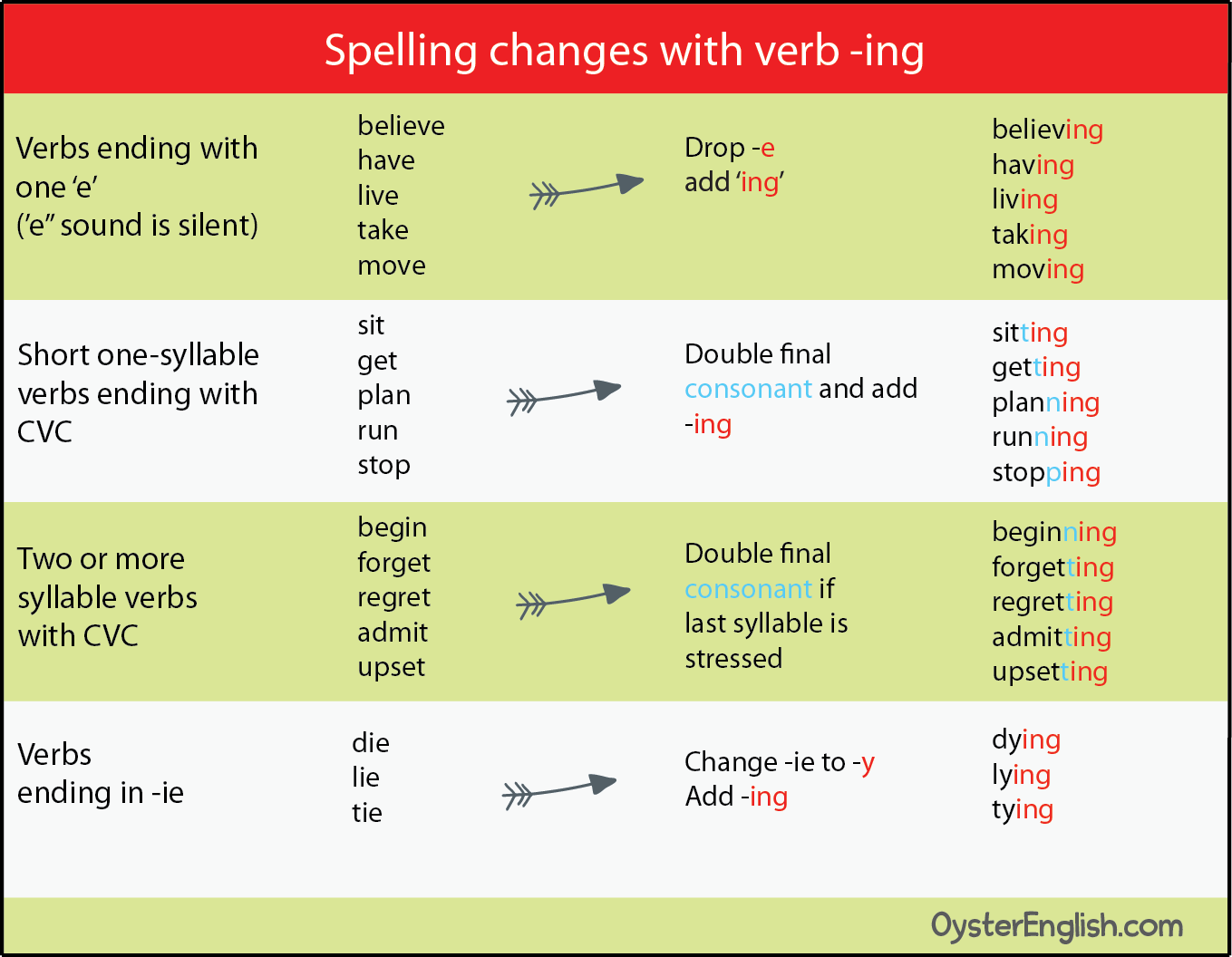Verb -ing Spelling Changes
(Continuous Tenses)
With the continuous (progressive) tenses as there are some -ing spelling changes so you need to be careful. Let's look at these changes in detail.
Verb-ing Spelling Changes: Verbs that end with one -e
For verbs that end with one -e, drop the -e and add -ing. Note that these verbs the -e sound at the end is silent. (e.g., believe, bake, take, move).
- achieve — achieving
- mate — mating
- live — living
- take — taking
- strike — striking
- bike — biking
- make — making
- have — having
- dance — dancing
But:
With verbs ending with a long -e sound, add -ing as you normally would:
- see — seeing
- be — being
- flee — fleeing
- agree — agreeing
Spelling: Short one-syllable verbs ending in CVC
If the verb has one syllable and ends with CVC (a consonant + vowel + consonant), we double the final consonant before adding the -ing ending:
- sit — sitting
- get — getting
- pet — petting
- plan — planning
- run — running
- put — putting
- stop — stopping
- trim — trimming
- win — winning
Spelling: verbs ending in w, x and y
Notice these verbs end in CVC (consonant vowel consonant). However, do not double the consonant for verbs that end in w, x or y.
- blow — blowing
- row — rowing
- plow — plowing
- stay — staying
- tax — taxing
Spelling: Two or more syllable verbs
When verbs ending in ending in CVC (consonant vowel consonant) have two or more syllables, double the last consonant if the last syllable is stressed.
- begin — beginning (be / GIN = the last syllable is stressed)
- forget — forgetting (for / GET = the last syllable is stressed)
- upset — upsetting
- regret — regretting
- prefer — preferring
- admit — admitting
However, when the last syllable is not stressed, just add -ing as usual.
- benefit — benefiting ( be / NE / fit = second syllable is stressed not the last)
- happen — happening (HAPP / en = first syllable is stressed not the last)
- open — opening
- listen — listening
- shiver — shivering
Spelling: Verbs ending in -ie
If a verb ends in -ie change 'ie' to 'y' then add -ing.
- die — dying
- lie — lying
- tie — tying
Click here to learn how to form the present continuous, past continuous, future continuous, present perfect continuous, past perfect continuous and future perfect continuous tenses.
- Home Page ›
- Main Grammar Page ›
- -ing Spelling Changes

